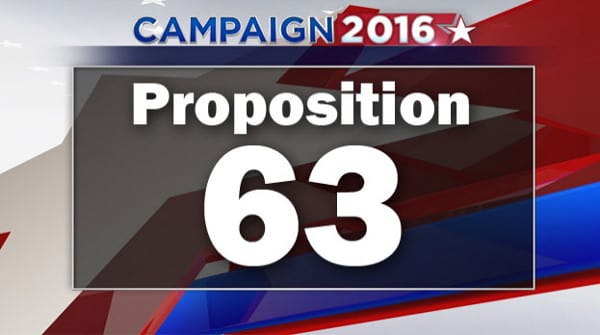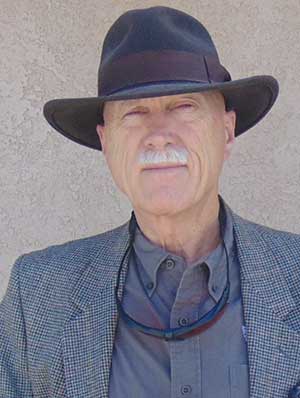By Dean Weingarten 

Arizona – -(Ammoland.com)-
In California, Proposition 63, the ban on gun magazines, requiring licenses to purchase ammunition, requiring reporting any change in gun ownership, has passed by an enormous margin, 63% to 37%. The measure had millions spent to get it passed. The gun haters outspent Second Amendment supporters over five to one. From ballotpedia.org:
Yes on Prop 63 outraised opponents five to one. As of November 3, 2016, supporters received $4.54 million, while opposing committees raised $868,265. The California Democratic Party, a supporter of Proposition 63, had contributed over $1 million to the campaign. The National Rifle Association was against the initiative and contributed $95,000 to opponents. Polls indicated that around 68 percent of residents supported Proposition 63 prior to the election.
Here are a few of the major provisions of the proposition. From Ballotpedia.org:
Licenses to sell ammo
In July 2016, California enacted legislation to regulate the sale of ammunition. The legislation required individuals and businesses to obtain a one-year license from the California Department of Justice to sell ammunition. Hunters selling 50 rounds or less of ammunition per month for hunting trips were not required to obtain a license
Proposition 63 established a misdemeanor penalty for failing to follow these dealer licensing requirements.
Large-capacity magazines
California banned large-capacity magazines for most individuals in 2000. Individuals who had large-capacity magazines before 2000 were allowed to keep the magazines. Proposition 63 removed the ownership exemption for pre-2000 owners of large-capacity magazines. The measure provided for charging Individuals who do not comply with it with an infraction.
Court removal of firearms
Proposition 63 enacted a court process that attempts to ensure prohibited individuals do not continue to have firearms. The measure required courts to inform individuals prohibited from owning a firearm that they must turn their firearms over to local law enforcement, sell their firearms to a licensed dealer, or give their firearms to a dealer for storage. Proposition 63 also required probation officers to check and report on what prohibited individuals did with their firearms.
Out-of-state purchases
Starting in July 2019, the July 2016 legislation would have prohibited most California residents from purchasing ammunition outside the state and bringing it into the state without first having it delivered to a licensed dealer. Proposition 63 moved up the start date of this law to January 2018. It also made bringing out-of-state ammunition into the state without first delivering it to a dealer an infraction.
Reporting theft
The measure required dealers of ammunition to report a theft or loss within 48 hours. It required individuals to report a theft or loss within five days to local law enforcement. Failure to report is considered an infraction under the initiative.
The proposition benefited by a full court press against gun ownership in Maine, Nevada, Washington State, and Oregon. The massive funding given to muliple referenda all on the same date, along with an absolutely critical presidential election, prevented Second Amendment supporters from concentrating their resources in opposition to one referendum.
I expect the proposition to be challenged in court. It remains to be seen if a replacement for Justice Scalia will be on the Supreme Court before a challenge might reach them. A challenge might not be mounted for months or years. It is possible that challengers will wait until the Supreme Court makeup is more favorable.
©2016 by Dean Weingarten: Permission to share is granted when this notice is included.
About Dean Weingarten;
Dean Weingarten has been a peace officer, a military officer, was on the University of Wisconsin Pistol Team for four years, and was first certified to teach firearms safety in 1973. He taught the Arizona concealed carry course for fifteen years until the goal of constitutional carry was attained. He has degrees in meteorology and mining engineering, and recently retired from the Department of Defense after a 30 year career in Army Research, Development, Testing, and Evaluation.
